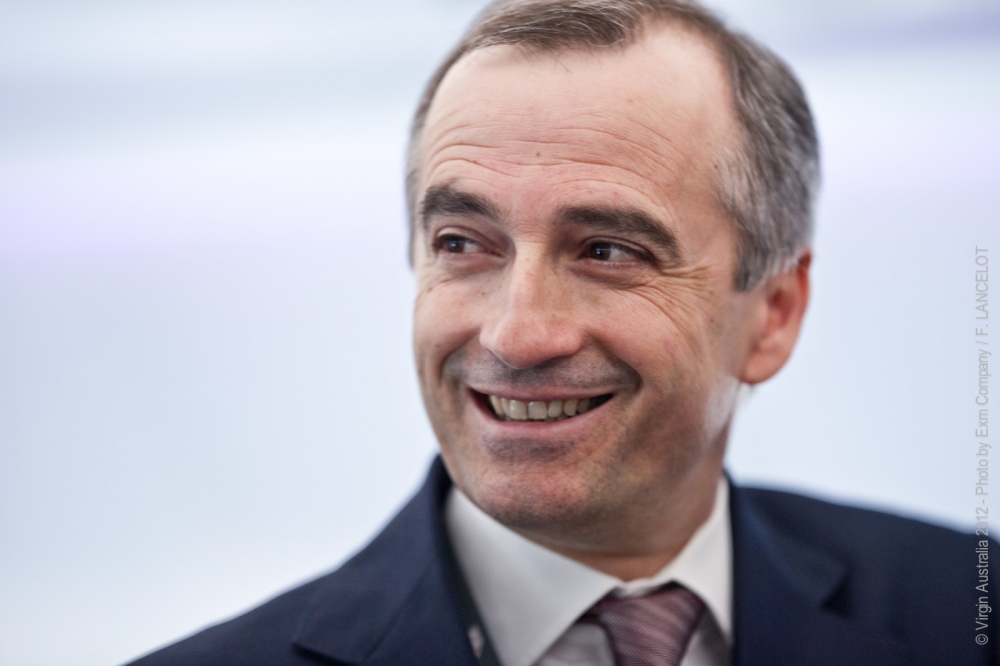Virgin boss calls for joint approach to Aussie biojet industry
04 October, 2017
4 min read


Virgin Australia chief executive John Borghetti has called for a long-term and coordinated approach to the development of an biojet industry in Australia.
Borghetti made the call after announcing the airline group would work with US renewable fuel supplier Gevo to introduce sustainable aviation fuels at Brisbane Airport.
The deal will mark the first time biofuels will be blended with regular jet fuel at an airport in Australia and only the third time in the world after Los Angeles and Oslo.
The project, which will run for two years in conjunction with the airport and the Queensland Government, is also the first time biojet produced by Gevo's alcohol-to-jet process will be blended with an airport's regular fuel supply.
The Virgin Group will be responsible for coordinating the purchase, supply and blending of the fuel and expects to receive the first shipment of biojet from the US company's Texas plant in the coming months.
Borghetti described the Brisbane venture as "an early step" and said there was more work to be done.
But he said it was an essential step towards making the widespread use and production of sustainable aviation fuel a commercial reality in Australia
“The industry is showing real promise but is still in its infancy,’’ he told a gathering of aviation heavyweights attending the Sir Reginald Ansett Memorial Lecture in Canberra on Tuesday.
“The reality is, like all new industries it needs support to get the efficiencies of scale that make it cost competitive.
“Sustainable aviation fuels are safe, but they are not yet commercially viable in our country. We need to bridge the gap between science and business, build scale and make these fuels widely available.
“This requires a coordinated effort from all stakeholders — airlnes, airports, governments, fuel suppliers and others. And it will take some time.’’
Borghetti’s call was echoed by International Air Transport Association director general Alexandre de Juniac who noted in a separate announcement that an increasing number of commercial flights were using sustainable fuels.
But he said there was only a small amount produced at a competitive price.
“Our call for government action on SAF (sustainable aviation fuel) is clear: they should be given the same incentives as alternative fuels for other sectors,’’ de Juniac said. “And we have also made it clear that we are not interested in alternative fuels that disturb the ecological balance.”
Biofuels are essential to an aviation industry commitment to carbon-neutral growth and a reduction in net aviation CO2 emissions, relative to 2005 levels, of 50 per cent by 2050.
There are now a range of processes that produce biofuels certified to meet the rigorous standards applied to fossil jet fuel but with significantly reduced life-cycle carbon emissions.
READ: Singapore Airlines tests biofuel made from cooking oil.
Tests have also shown that biofuels have a slightly higher energy density and lower sulphur content than traditional fuels.
The alcohol used in the Gevo process can be derived from sustainable sources such as sugarcane begasse, molasses, wood waste and agave.
The company's biojet from Texas and will be made using isobutanol from a commercial plant in Minnesota.
But Gevo chief executive Patrick Guber said there would be significant opportunities for biojet production in Queensland, an expectation echoed by the state’s Premier.
“When I visited Queensland last year for the Biofutures Industry Forum, I discovered the depth and diversity of your agriculture sector,” Guber said.
“We believe Queensland offers huge potential for low-cost sugar feedstocks to produce biofuels. It really opened our eyes to Queensland's potential for sustainable aviation fuels based on Gevo’s alcohol-to-jet technology.’’
Get the latest news and updates straight to your inbox
No spam, no hassle, no fuss, just airline news direct to you.
By joining our newsletter, you agree to our Privacy Policy
Find us on social media
Comments
No comments yet, be the first to write one.

